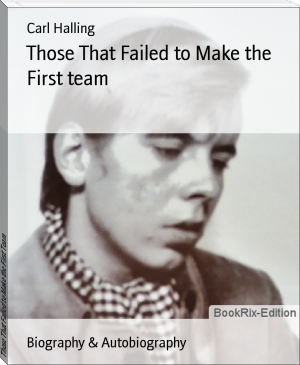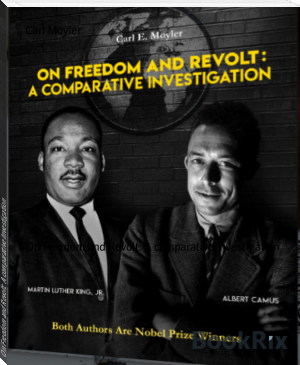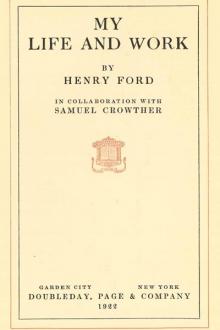Those That Failed to Make the First Team - Carl Halling (first ebook reader TXT) 📗

- Author: Carl Halling
Book online «Those That Failed to Make the First Team - Carl Halling (first ebook reader TXT) 📗». Author Carl Halling
Book One – An Autobiographical Narrative and Various Versified Memories 2
An Autobiographical Narrative: 1960s
‘Snapshots from a Child’s West London’
Serves, as did its predecessor,
‘Born on the Goldhawk Road’
As a fitting preface
To a second long autobiographical piece
Consisting almost entirely
Of versified prose, and linear in nature,
Which is to say,
Beginning with my birth
And leading all the way to the present day.
In its primordial form,
It knew life as spidery writings
Filling four and a half pages
Of a school notebook
In what is likely to have been 1977.
And these were edited in 2006,
Before being tendered a new title,
Subjected to alterations in punctuation,
And then finally published at Blogster
On the 10th of March of that year.
Some grammatical corrections took place,
Which were suitably mild
So as not to excessively alter the original work,
From which certain sentences were composed
By fusing two or more sections together.
Ultimately, parts of it were incorporated
Into the memoir, ‘Rescue of a Rock and Roll Child’,
And thence into the first chapter
Of the definitive autobiographical piece,
‘Seven Chapters from a Sad Sack Loser’s Life’.
But recently, it was newly versified,
With a fresh set of minor corrections,
Although as ever with these memoir-based writings
The majority of names have been changed,
And they are faithful to the truth to the best of my ability.
Snapshots from a Child’s West London
I remember the 20th Chiswick Wolf Cub pack,
How I loved those Wednesday evenings,
The games, the pomp and seriousness of the camps,
The different coloured scarves, sweaters and hair
During the mass meetings,
The solemnity of my enrolment,
Being helped up a tree by an older boy,
Baloo, or Kim, or someone,
To win my Athletics badge,
Winning my first star, my two year badge,
And my swimming badge
With its frog symbol, the kindness of the older boys.
I remember a child’s West London…
One Saturday afternoon, after a football match
During which I dirtied my boots
By standing around as a sub in the mud,
And my elbow by tripping over a loose shoelace,
An older boy offered to take me home.
We walked along streets,
Through subways crammed with rowdies,
White or West Indian, in black gym shoes.
‘Shuddup!’ my friend would cheerfully yell,
And they did.
‘We go' a ge' yer 'oame, ain' we mite, ay?’
‘Yes. Where exactly are you taking me?’ I asked.
‘The bus stop at Chiswick 'Oigh Stree'
Is the best plice, oi reck'n.’
‘Yes, but not on Chiswick High Street,’
I said, starting to sniff.
‘You be oroight theah, me lil' mite.’
I was not convinced.
The uncertainty of my ever getting home
Caused me to start to bawl,
And I was still hollering
As we mounted the bus.
I remember the sudden turning of heads.
It must have been quite astonishing
For a peaceful busload of passengers
To have their everyday lives
Suddenly intruded upon
By a group of distressed looking Wolf Cubs,
One of whom, the smallest,
Was howling red-faced with anguish
For some undetermined reason.
After some moments, my friend,
His brow furrowed with regret,
As if he had done me some wrong, said:
‘I'm gonna drop you off
Where your dad put you on.’
Within seconds, the clouds dispersed,
And my damp cheeks beamed.
Then, I spied a street I recognised
From the bus window, and got up,
Grinning with all my might:
‘This'll do,’ I said.
‘Wai', Carl,’ cried my friend,
Are you shoa vis is 'oroigh'?’
‘Yup!’ I said. I was still grinning
As I spied my friend's anxious face
In the glinting window of the bus
As it moved down the street.
I remember a child’s West London…
One Wednesday evening,
When the Pops was being broadcast
Instead of on Thursday,
I was rather reluctant to go to Cubs,
And was more than usually uncooperative
With my father as he tried
To help me find my cap,
Which had disappeared.
Frustrated, he put on his coat
And quietly opened the door.
I stepped outside into the icy atmosphere
Wearing only a pair of underpants,
And to my horror, he got into his black Citroën
And drove off. I darted down Esmond Road
Crying and shouting.
My tearful howling was heard by Margaret,
19 year old daughter of Mrs Helena Jacobs,
Whom my mother used to help
With the care and entertainment
Of Thalidomide children.
Helena Jacobs expended so much energy
On feeling for others
That when my mother tried to get in touch
In the mid 70s, she seemed exhausted,
And quite understandably,
For Mrs O'Keefe, her cleaning lady
And friend for the main part
Of her married life
Had recently been killed in a road accident.
I remember that kind
And beautiful Irish lady,
Her charm, happiness and sweetness,
She was the salt of the earth.
She threatened to ca-rrown me
When I went away to school...
If I wrote her not.
Margaret picked me up
And carried me back to my house.
I immediately put on my uniform
As soon as she had gone home,
Left a note for my Pa,
And went myself to Cubs.
When Pa arrived to pick me up,
The whole ridiculous story
Was told to Akela,
Baloo and Kim,
Much, much, much to my shame.
I remember a child’s West London…
The year was 1963, the year of the Beatles,
Of singing yeah, yeah in the car,
Of twisting in the playground,
Of ‘I'm a Beatlemaniac, are you?’
That year, I was very prejudiced
Against an American boy, Robert,
Who later became my friend.
I used to attack him for no reason,
Like a dog, just to assert my superiority.
One day, he gave me a rabbit punch in the stomach
And I made such a fuss that my little girlfriend, Niña,
Wanted to escort me to the safety of our teacher,
Hugging me, and kissing me intermittently
On my forehead, eyes, nose, cheeks.
She forced me to see her:
‘Carl didn't do a thing,’ said Niña,
And Robert came up an gave him
Four rabbit punches in the stomach’.
Robert was not penalized,
For Mademoiselle knew
What a little demon I was,
No matter how hurt
And innocent I looked,
Tearful, with my tail between my legs.
I remember a child’s West London…
An Autobiographical Narrative: 1970s
‘The Athlete, the Poet and the Reprobate’
Was based largely on writings
Created possibly as early as 1976.
And as such, it’s been reproduced
More or less word for word
Despite having been recently edited
And subject to basic versification.
And in its original form,
It constituted some kind of
Unfinished fantastical novel
Centered on the titular
Athlete, Poet and Reprobate,
An absurdly self-exalting
Version of the original.
For within less than two decades
Of penning these self-same words,
I’d come to saving faith in Christ Jesus.
As to novels reflecting the luxurious lifestyle
Of a bygone age,
None had been even remotely completed
By the time of writing,
And unless I’m grossly mistaken,
I was several years shy of becoming an actor.
That said, the timidity described
Is at least partially accurate,
And I did feel the need to provide
An outward show of my significance
Through a peacock display of dandyism,
Which included
Some wildly idiosyncratic behaviour,
As well as the subtle deployment of cosmetics.
The Athlete, the Poet and the Reprobate
‘I can’t decide, she said,
Whether you’re an aesthete
Or an athlete
A poet or a reprobate.”
‘Even when I’m a lout,
I’m an aesthete, he answered,
I lure, rather than seek.’
‘So why do you
Need to dress up?’
‘Like Ronald Firbank,
I suffer from a need
To give an outward show
Of my significance.
His lifestyle is an uncanny
Parallel
To my own young manhood
I alienated people
Through a crippling shyness
Which I disguised
With my violently idiosyncratic
Behaviour, wore cosmetics
And wrote novels
That reflected the luxurious
Lifestyle of a bygone age.
The sensation
Of never quite belonging
Lingered about me always
That’s why
I became an actor.
Through heavy experiences
I have built up
A stoned wall
Resistance
Against arrogance and aloofness
I am a sophisticated cynic
With a kind heart
And a tendency towards regret.’
An Autobiographical Narrative: 1980s
The origins of ‘An Actor Arrives’
Lie in the barest elements
Of a story started but never finished
In early 1980,
While I was working at the Bristol Old Vic
Playing the minute part
Of Mustardseed the Fairy
In a much praised production
Of Shakespeare’s celebrated
‘A Midsummer Night’s Dream’.
It was originally rescued in 2006,
From a battered notebook in which I habitually scribbled
During spare moments offstage
While clad in my costume
And covered in blue body make-up
And silvery glitter. And while doing so,
Some of the glitter was transferred from the pages
With which the were stained
More than a quarter of a century previously
Onto my hands…an eerie experience indeed.
An Actor Arrives (at the Bristol Old Vic)
I remember the grey slithers of rain,
The jocular driver
As I boarded the bus
At Temple Meads,
And the friendly lady who told me
When we had arrived at the city centre.
I remember the little pub on King Street,
With its quiet maritime atmosphere.
I remember tramping
Along Park Street,
Whiteladies Road and Blackboy Hill,
My arms and hands aching from my bags,
To the little cottage where I had decided to stay
And relax between rehearsals,
Reading, writing, listening to music.
I remember my landlady, tall, timid and beautiful.
An Autobiographical Narrative: 1980s
'Verses for Tragic Lovers
Adolphe and Ellénore'
Is based on an essay I wrote
Around 1983
For a former mentor at university,
Who sadly died in 2008,
And who features
As Dr Elizabeth Lang
In various autobiographical
Writings of mine.
It concerns the protagonist
Of French writer Benjamin Constant’s
1816 novel “Adolphe”,
(Which its author emphatically insisted
Was not autobiographical;
Nor a roman a clef),
Who is a prototypal victim
Of what has been termed
Le Mal du Siècle,
Or the sickness of the century...
Which, born in the wake of the Revolution,
And arising from a variety of causes,
Political, social, and spiritual,
Depending on the sufferer in question,
Produced such qualities as
Melancholy and acedia,
And a perpetual sense of exile, of alienation,
That found special favour within
The great Romantic movement in the arts.
Although as a phenomenon,
World pain was hardly a novel one,
For





Comments (0)